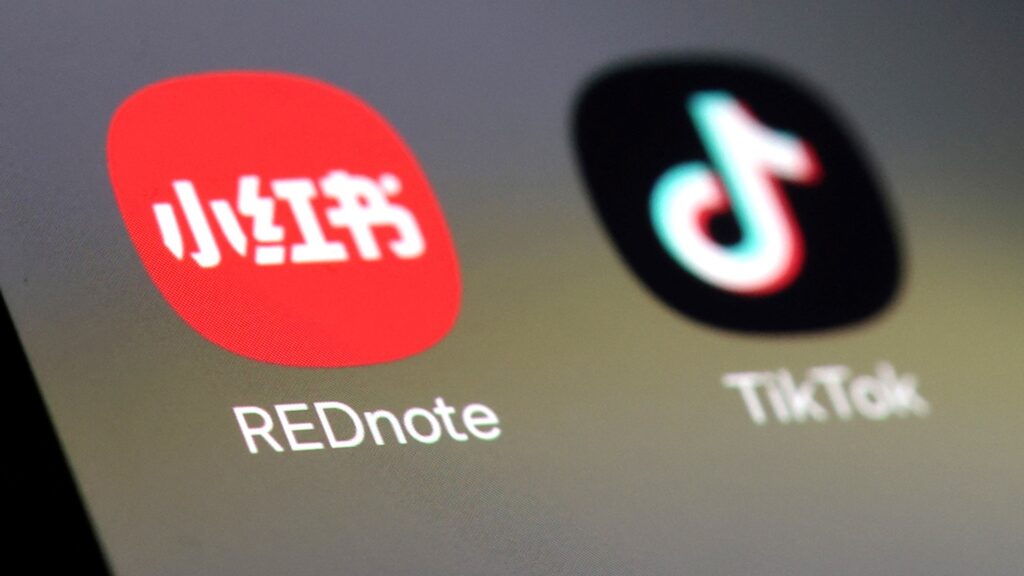
(CLAIR | Simi Valley, CA) — The U.S. government’s ban on TikTok, citing concerns about Chinese government influence, has triggered an unexpected cultural phenomenon. Many Americans, rejecting platforms like Instagram Reels and YouTube Shorts, are flocking to Red Note—a Chinese-owned platform with even deeper ties to Beijing. This shift highlights not only protest against corporate lobbying and government overreach but also a deep irony in how the ban has amplified Chinese cultural influence.

The TikTok ban, justified by national security concerns over data privacy, has been widely questioned. Critics argue the move was less about protecting users and more about promoting U.S. tech giants like Meta and Google. Many users see the ban as a government favor to companies like Meta, which struggled to compete with TikTok through platforms like Instagram Reels.
Instead of rallying behind U.S. alternatives, millions of users have chosen to migrate to Red Note, a platform that unabashedly promotes Chinese culture and values. Ironically, this shift has deepened the very cultural and digital ties the U.S. government sought to weaken.
Red Note offers an experience that TikTok users find familiar. Its algorithm serves up short-form content tailored to individual preferences, and the platform has quickly established a reputation for delivering diverse, engaging material. But for many users, the move to Red Note is about more than convenience—it’s a form of rebellion.
By embracing Red Note, Americans are effectively rejecting the notion that their digital lives must be dictated by U.S. government policy or the lobbying of tech giants. The platform has become a symbol of defiance, with users choosing to engage more deeply with a Chinese cultural export rather than settling for what they view as inferior, U.S.-based options.
The migration to Red Note is steeped in irony. Government officials sought to limit the influence of the Chinese government on American users by banning TikTok. Instead, they inadvertently drove millions toward a platform even more closely aligned with China’s values and policies. Red Note’s terms of service, for example, explicitly require adherence to Chinese constitutional principles, including the promotion of “correct views” on history and culture.
In doing so, the U.S. government has not only failed to shield its citizens from Chinese influence but has actively amplified it. Americans are now consuming more Chinese cultural content than ever before, exploring perspectives that challenge long-held narratives about China as an adversary.
This ironic embrace of a Chinese cultural phenomenon is fueled by dissatisfaction with U.S. tech platforms. Instagram Reels and YouTube Shorts, seen as poorly designed and heavily commercialized, lack the vibrant community and advanced algorithms that defined TikTok. Furthermore, users are frustrated by Meta’s perceived manipulation of the ban to protect its market share.

For many, the choice to embrace Red Note reflects broader frustrations with corporate monopolies and government intervention. The move sends a clear message: users value authenticity, innovation, and freedom of choice over nationalistic or corporate agendas.
The TikTok ban and the rise of Red Note illustrate the unintended consequences of government policy in a globalized digital age. In trying to curb Chinese influence, the U.S. has inadvertently encouraged its citizens to engage more deeply with it. This shift challenges assumptions about cultural dominance and highlights the power of users to shape the digital landscape on their own terms.
As this phenomenon unfolds, the irony remains unmistakable: a policy aimed at limiting Chinese control has fueled one of the most widespread adoptions of a Chinese cultural export in recent memory. The implications for both the U.S. tech industry and global cultural exchange are just beginning to emerge.













